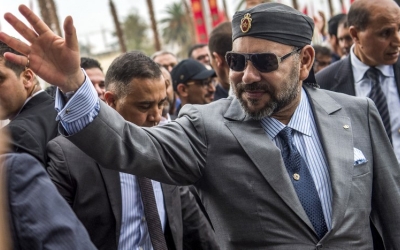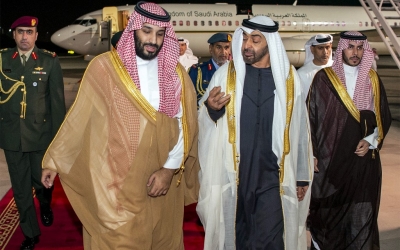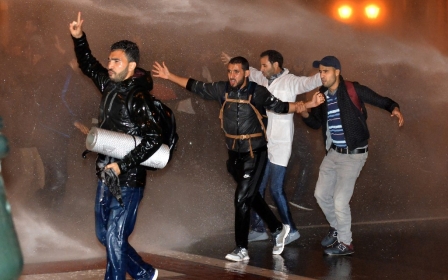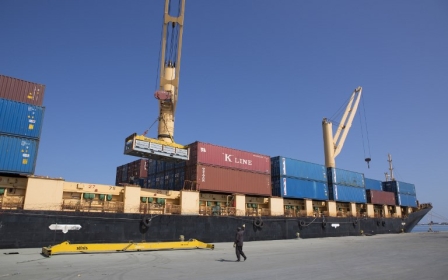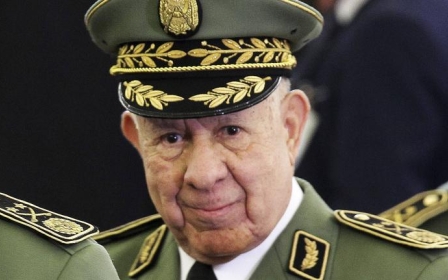Why Morocco's king is moving closer to Saudi Arabia's MBS
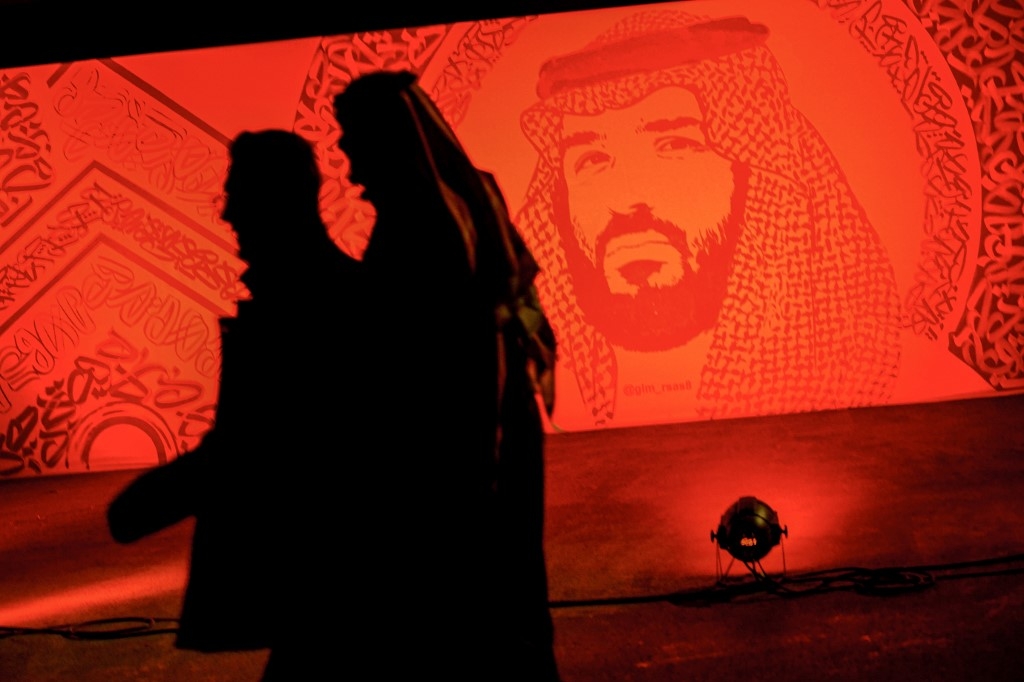
Following the state visit of Algerian President Abdelmadjid Tebboune to Saudi Arabia in February, Rabat is under pressure to consolidate ties with Riyadh.
Thus, Mohammed VI of Morocco rushed his senior adviser, Fouad Ali El Himma, to Riyadh on 26 February for talks with Saudi Crown Prince Mohammed bin Salman (MBS).
The Moroccan monarch is not, however, neglecting its good relations with Qatar. A day after the meeting in Riyadh, El Himma and the Moroccan foreign affairs minister, Nasser Bourita, were received by the emir of Qatar, Sheikh Tamim bin Hamad Al Thani.
Why are Morocco and Algeria in such a hurry to take sides in the Gulf dispute? Could it mean a diplomatic shift in Rabat’s relationship with Riyadh, or is it a temporary warming as Morocco’s leadership prepares a diplomatic comeback?
Tensions over Western Sahara
New MEE newsletter: Jerusalem Dispatch
Sign up to get the latest insights and analysis on Israel-Palestine, alongside Turkey Unpacked and other MEE newsletters
Either way, Morocco and Saudi Arabia have a lot to gain from resolving their political differences.
For Morocco, an alliance with Saudi Arabia could give legitimacy to its claims in the kingdom’s diplomatic war against the Polisario Front and its main backer, Algiers.
Early this year, Rabat managed to convince a number of small African nations to open consulates in the Western Sahara. Algiers was quick to respond, recalling its ambassador to the Ivory Coast for “consultations” in February after the country opened a consulate in Laayoune.
Algeria’s more enterprising president caught Morocco off guard by making a state visit to Saudi Arabia at the request of King Salman
As for the Polisario Front, it sees Morocco’s diplomatic manoeuvrings as a political affront to the people of Western Sahara.
Republican Senator James Inhofe, who chairs the US Senate Armed Services Committee, said as much in February, when he reaffirmed his support to the Sahrawi people in their struggle.
At the regional level, the Polisario Front, with the backing of Algeria and South Africa, has successfully consolidated its position within the African Union. At its 7 February meeting in Addis Ababa, the organisation demanded the mandatory presence of all of its member states at international summits.
'Political overtures'
This perhaps explains Saudi Arabia’s sudden decision to put off the Arab-African summit, slated to be held on 16 March in Riyadh: the Polisario Front was expected to receive an invitation.
The thinly disguised refusal of MBS to receive the Polisario Front was apparently favourably met by Moroccan diplomats. The gesture smacked of political overtones; the crown prince was “reaching out” to the Alaouite monarch, who didn’t respond straightaway to the Saudi prince’s “political overtures”.
But Algeria’s more enterprising president caught Morocco off guard by making a state visit to Saudi Arabia at the request of King Salman. It was Tebboune’s first visit to a foreign country since being elected in December. King Mohammed VI swiftly dispatched El Himma and Bourrita to meet with MBS in Saudi Arabia.
According to government sources, the Moroccan diplomats were in Saudi Arabia ahead of a scheduled state visit by Mohammed VI himself. The two kingdoms were reportedly hoping to reinforce their countries’ deep historical ties, and to promote greater economic and security cooperation between Rabat and Riyadh.
A confidential diplomatic source mentioned the idea of Moroccan mediation, as the country is a potential candidate for the organisation of an international conference to help bring about a reconciliation between Riyadh and Doha. It would be tempting to conclude that the kingdom’s policy of “active neutrality” has prepared it to play middleman between Riyadh and Doha.
A stabilising country
For starters, Riyadh helped Rabat built the sand wall or “berm” in Western Sahara in the mid-80s at the height of the war between Morocco and the Polisario Front.
Then, in 2012, Gulf state petro-monarchies, including Saudi Arabia, the United Arab Emirates, Qatar and Kuwait, pledged $5bn to Morocco to help finance domestic structural projects meant to shore up the economy and tourism.
Morocco has demonstrated its independence on the international stage by remaining neutral in the 2017 blockade of Qatar
In 2015, Morocco joined Saudi-led military operations against Iranian-backed Houthi rebels in Yemen. The kingdom ended its military involvement in 2019, however, despite its military commitments to Gulf Cooperation Council (GCC) countries.
For the Gulf countries, Morocco represents a stabilising power, attractive to foreign investment and a geostrategic gateway to Europe.
Moreover, the kingdom has demonstrated its independence on the international stage by remaining neutral in the 2017 blockade of Qatar. Mohammed VI even decided to send food aid to Qatar and visited Doha shortly after the blockade began.
Morocco’s social and economic foothold in Africa could furthermore give the GCC bloc the strategic latitude it needs for launching investments and smoothing regional frictions, most notably in Libya, where new geostrategic ambitions, including those of Turkey, are playing out.
Restoring bin Salman's tarnished image
Rapprochement between Mohammed VI and MBS is a win-win policy for the two monarchies. With regards to the Western Sahara conflict, the Gulf countries could strengthen Morocco’s attempts at swaying influential UN Security Council members to adopt resolutions in favour of the kingdom’s sovereignty claims.
For Saudi Arabia, a rapprochement with Morocco could help restore the badly tarnished image of the crown prince, implicated in the murder of journalist Jamal Khashoggi.
As for Qatar, the emirate could hope to see the end of the blockade, with the aim of relaunching its investment projects and influencing the regional political process along the way.
While Mohammed VI’s state visit can hardly be seen as a reversal of Rabat’s regional foreign policy, diplomatic action could clearly help to restore warm political relations between the two kingdoms.
Maximalist agenda
That said, Morocco’s leadership has its work cut out, given its exclusion from the Libyan political process, compounded by Turkey’s diplomatic jockeying - as well as the refusal of the Sisi regime to work with the Moroccan kingdom.
To make matters worse, the Algeria-backed Polisario Front is now making its voice heard on the international stage.
It is for these reasons that an alliance between Morocco and the Gulf states has appeared over time to be in both parties’ interests - a development that doesn’t bode well for Mohammed VI’s “diplomatic balancing act”, with MBS pursuing his maximalist agenda for the region.
The views expressed in this article belong to the author and do not necessarily reflect the editorial policy of Middle East Eye.
This article has been translated from the MEE French edition.
Middle East Eye delivers independent and unrivalled coverage and analysis of the Middle East, North Africa and beyond. To learn more about republishing this content and the associated fees, please fill out this form. More about MEE can be found here.



